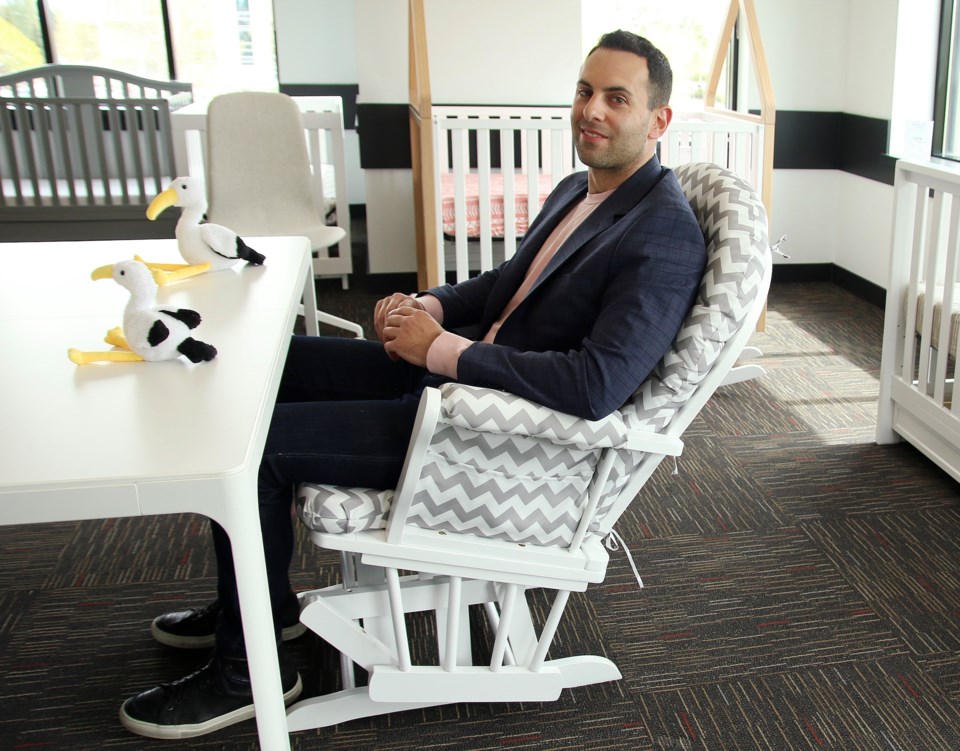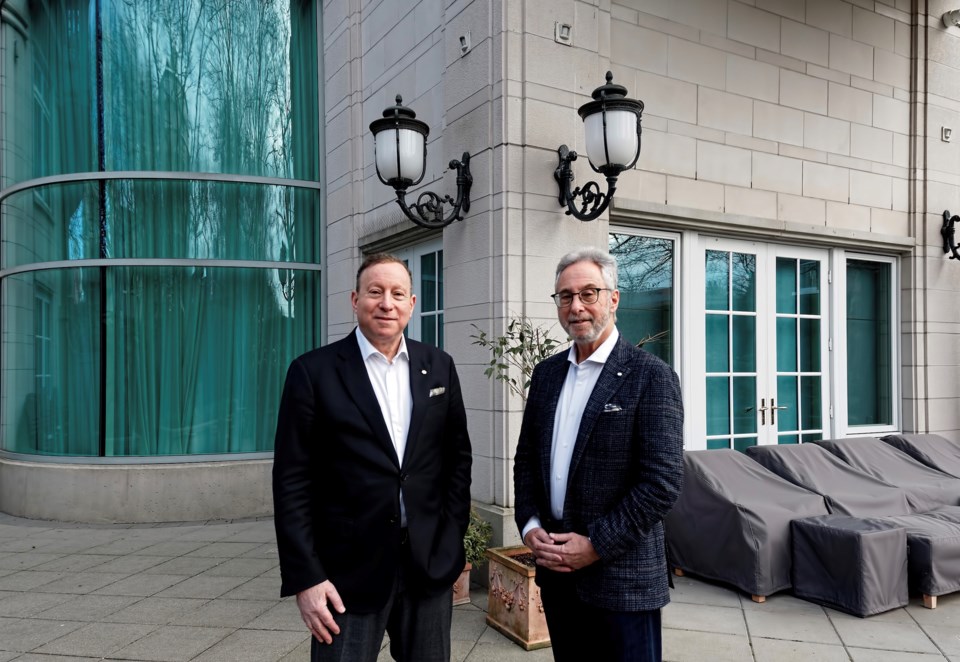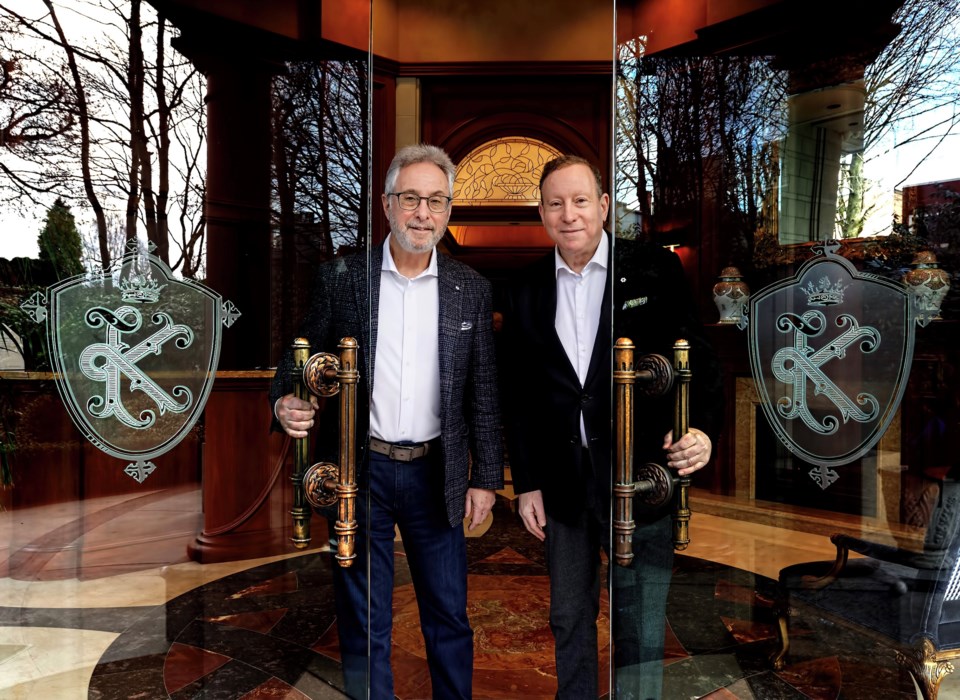Vancouver’s Segal family is adjusting to life without the generation that founded and built an impressive business empire under the Kingswood Group of Companies banner.
Rosalie Segal died at the age of 92 on Nov. 12, a year and a half after longtime husband and family patriarch Joe Segal died at the age of 97, on May 31, 2022.
Joe in 2016 told BIV that his role in the company was to be the “bird dog” — someone who finds and analyzes potential business deals or transactions.
He reportedly worked actively in that role until the day before his passing.
“Operations are continuing as they were,” Gary Segal told BIV earlier this month. At 71 years old, Gary is Joe’s eldest son. He and brother Lorne Segal, 69, are the two senior principals at the family company. Joe’s two daughters, Sandra Miller and Tracey Schonfeld, are each in their 70s and have shares in the family business but are not actively involved.
Gary and Lorne have so far followed their father’s example of not retiring.
“My dad’s opinion was that you’re healthier and you live longer if you stay engaged, and don’t retire to become not mentally engaged or to not have a purpose,” Gary said.
“When my dad, bless his memory, was still around, people would ask me, ‘Are you going to retire?’ And I’d say, ‘Well, that would be kind of weird for me to retire before my father.’”
He said that his family is always evaluating how to strategically evolve its business and considering which assets to buy and which ones to sell.
The family’s holdings mostly span real estate and manufacturing, though through the years the family held significant retail holdings, such as Fields and Zellers.
Lorne’s main role in the company is to oversee real estate development, while Gary oversees subsidiary companies, real estate investment and finding tenants, he said.
The , makes cribs and children’s furniture in Asia and Mexico and sells them in Canada and internationally. Most sales are in the U.S.
Gary’s two sons work in that business: Adam Segal, 39, is CEO while Justin Segal, 33, is vice-president of product and brands. Gary’s two daughters, Hayley and Stephanie, are not involved in the family business.
Lorne’s son, Matthew Segal, is a technology entrepreneur working outside the family business. His daughter, Chanelle Segal, is similarly not working in the business.
Storkcraft’s business boomed during the pandemic, Adam told BIV.
His profitable company surpassed $150 million in annual revenue during the pandemic and has since seen sales plateau.
Adam said he has ambitious goals for Storkcraft in the next decade and that for now he is happy to be focused on that part of his family’s business empire.

Image: Adam Segal is CEO at the crib and furniture maker Storkcraft | Rob Kruyt, BIV
Other Segal-family subsidiary companies include:
• North Vancouver-based, boltless-shelving manufacturer E-Z-Rect Manufacturing Ltd.;
• North Vancouver-based, natural-gas-powered, hot-water boiler maker Allied Technologies; and
• Delta-based pallet-racking and forklift manufacturer Arpac.
The Segals either entirely own those companies, or own substantial stakes.
Family members sometimes own small stakes in public companies, but Kingswood tends not to buy minority stakes in publicly traded companies, Gary said.
“We don’t do that, which is what Jimmy Pattison does,” he said.
Indeed, Pattison owns minority stakes in West Fraser Timber Co. Ltd. (TSX:WFG) and Westshore Terminals Investment Corp. (TSX:WTE).
Some past investments the Segals made in private companies have turned out well. They invested in Avigilon years before its 2011 initial public offering, when shares launched trading at $4.50 apiece. Motorola then bought Avigilon in 2018 for the equivalent of $27 per share.
Real estate is the Segal family’s lifeblood
If you want to spark a conversation with Lorne, ask him about the Kingswood condominium project at the corner of West 14th Avenue and Fir Street.
He poured his passion into that development, which he calls the “first super-luxury” condo building in the city.
Lorne was intimately involved with deciding design elements at the Kingswood — from the custom floor-to-ceiling curved glass forming, to the types of plants used in the gardens, according to the Kingswood Properties website.
“Even the chalk lines used by the construction team were inspected by Lorne’s discerning eye,” .
Lorne told BIV that the Kingswood project was “pivotal” in that it led the way for other super-luxury projects in Vancouver.
Indeed, the Kingswood’s 2001 completion date was around the time that James Schouw and partners built the super-luxury Iliad on Homer Street, and then a super-luxury project at 499 Drake project that morphed to include the Grace Tower in 2008.
Those projects, like the Kingswood, include suites with private elevators that exclusively connect single units to parking garages. In the Kingswood's case elevators descend to private parking garages.
What gives Lorne the most satisfaction about the Kingswood is that his parents were able to move into the project during the COVID-19 pandemic.
They sold their Belmont Avenue mansion for $42 million in mid-2021, after listing it through Sotheby’s International for $58 million, and downsized.
“The idea in creating the Kingswood, and something called the West Estate, was really to give someone who is moving from the finest home somewhere the feeling that they’re living in a single-family home,” Lorne said.
“At the ground level, it is two storeys, with 18 feet of glass and a private 5,000-square-foot garden. I remember when they moved into the Kingswood.... I never thought that one day they’d actually be living there. It was a very gratifying thing.”

Image: Lorne Segal (left) and brother Gary Segal stand outside the unit of the Kingswood where their parents lived until they died | Chung Chow, BIV
The family’s involvement in real estate started in 1979, after and made enough of a profit to kick-start a career as a real estate developer.
In 1988, he was part of a consortium that spent an estimated $150 million to buy Block Bros. Realty’s Canadian assets, which included properties in Western Canada and a real estate brokerage business.
Joe’s modus operandi since he opened a military-surplus retail business in 1946 was to buy whatever no one else wanted.
“If anybody else wanted the goods, I couldn’t compete [because the products would be too expensive,]” he told BIV in 2015.
He often applied that strategy to real estate.
In 2014, he was part of a partnership that on Columbia Street in New Westminster. The family was soon able to find tenants.
Another success in turning around an undesirable property was a transaction in the mid-1990s to buy a tenantless 350,000-square-foot property at 611 Alexander Street, near the Port of Vancouver.
The building is so long that if it were to stand upright, it would be as tall as a 35-storey tower.
The Segals filled the building with tenants and have made it a viable investment.
“We have a collection of income assets on the real estate side: A significant portfolio of industrial and commercial and residential,” Lorne told BIV.
Notable pieces of that real estate empire include:
• The Kingswood Industrial Park in Richmond, which includes about two million square feet in 12 buildings;
• The under-development Redbridge project in Squamish, where Lorne estimates 1,000 people would live by 2025;
• A property at 1040 Alberni Street that includes the 1984-built, 212,000-square-foot, 22-storey Grosvenor Building, and a smaller two-storey and was on land that ; and
• 910 Mainland Street, a 300,000-square-foot building leased to SAP, which is on 105,000 square feet of land in the heart of Yaletown.
A partnership with Bosa Properties has in the past decade or so hatched projects such as a large mixed-use, master-planned community in 麻豆社国产named SEAandSKY, and a development at 1515 West Georgia Street.
The Bosas and the Segals worked together to buy the Crown Life Building at 1500 West Georgia Street for $120 million from the Healthcare of Ontario Pension Plan in the summer of 2014.
They then set their sights on redeveloping the property’s plaza by building a tower designed by German star-architect Ole Scheeren. The .
A focus on philanthropy
The Segal family may be best known for its commitment to charity, and some past gifts have made headlines because of their size.
Joe and Rosalie in 2010 gave $12 million to the VGH and UBC Hospital Foundation to build a mental-health building now known as the Joseph & Rosalie Segal & Family Health Centre.
Lorne told BIV that Joe applied his business philosophy when determining what he would help finance philanthropically.
“What is it that no one else wants?” Lorne said was the question that his father had when the hospital foundation asked him if he would consider making a donation.
“You’ve got all these other sexy causes. What is the least sexy cause? That happened to be mental health.”
Lorne later went on to chair Coast Mental Health’s Courage To Come Back Awards.
He was also the Vancouver founder of WE Day Vancouver, an offshoot of Marc and Craig Kielburger’s Toronto-based WE Charity. The international development organization raised money to provide education, water, health care, food and economic opportunity to youth around the world.
The WE Charity wound down operations in 2020 following a scandal that involved the federal government providing it with a $43.53-million contract to administer a $900-million Canada Student Service Grant program. It later came to light that the charity had paid members of Prime Minister Justin Trudeau’s family to speak at events.
Gary’s philanthropic endeavours include visiting Ethiopia as part of a Jewish Federation mission to learn about efforts of the Joint Distribution Committee. He wound up sponsoring an Ethiopian villager who had a severe spine deformity to have life-altering surgery at Vancouver General Hospital.
“He’s actually like a foster son to us,” Gary said. “Maybe you could say I have another foster grandson in Ethiopia, as he was born nine months ago.”
Gary also founded an organization called Bring Back Hope, which held fundraising events before the pandemic, and is set to hold another one later this year.
Two previous events raised more than $3 million and brought more than 1,600 people out “to celebrate American humanitarians doing good in the world,” Gary said.
Ronald McDonald House is another of Gary’s passions. He served on its board of directors for six years and chaired its capital campaign to expand the current Ronald McDonald House to 73 rooms from 13.
Gary has also been president of the Louis Brier Home and Hospital, which is a 215-bed accredited residential care facility.
The Segal philanthropic ethic has been passed down to the next generation. Adam told BIV that he has been active on the board of organizations such as Backpack Buddies, which helps feed hungry kids in B.C.
The Joseph Segal Family Foundation also continues to provide money for a wide variety of causes.
“Contrary to a lot of foundations, we look at everything,” Lorne said. “There really isn’t a solid mandate. Perhaps we should have one, as it makes it a little bit easier when you can narrow the focus to three, four or five things. We kind of look at where the squeaky wheel is.”
In 2021, the foundation provided $1 million to fund the Juvenile Diabetes Research Foundation Centre of Excellence at the University of British Columbia.
The size of a donation, however, is not the biggest determinant of whether it qualifies as philanthropy, Joe stressed to BIV in 2015.
Instead of assessing gifts by sheer size, it is better to measure how much it affects someone’s standard of living, he said.
Joe described a “little old lady living on a pension whose husband, a longshoreman, has died.”
The widow has been struggling since her husband’s death, and lives on a modest pension in a house in East Vancouver, Joe said at the time.
“Taxes were $400 per year but now they’re $8,000 per year because the land value has gone up,” he said.
“She wants to live there until she dies. So, there’s a knock at the door. It’s near Christmas and it’s the Salvation Army. She starts to say ‘No,’ but then says, ‘Just a minute.’ She goes to the cookie jar that has a grocery list and money. She takes money out and goes to the door. ‘Here’s $20.’ Then, she crosses items off her grocery list. Giving is not always measured by the size of the gift.”
Joe then said that he has always given donations “in keeping with what I could afford to give. Never less, never more.”
This article is part of a BIV series that profiles some of B.C.’s biggest multi-generational family business empires. The first profiles – , and – can be read at .

